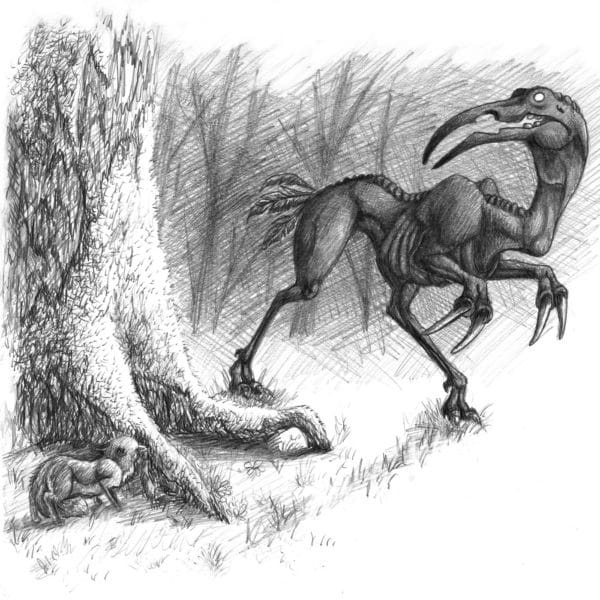In my last post, I talked a bit about how I’ve always had a fascination with dark stories, even from a very early age (Watership Down was a firm favourite of mine at the tender age of 3). Dark stories can be incredibly therapeutic. When writing them they can expunge all kinds of negative feelings, creating a safe way to vent. When reading, there is a measure of relief and solace to be found in following characters who are having an even worse time than you. Or sometimes, when you are feeling alone and isolated in your struggles, finding a story that mirrors what you’re going through can be a life-raft; a way to feel less invisible — like there is someone out there who sees and acknowledges your pain. And in a life where almost nothing was within my control except for what I could get down on paper, a mantra began repeating itself in my thoughts: ‘I only bleed ink’.
I have created, thus far, three different versions of my comic Children of Shadow, each almost unrecognisable from the others. Every time I made it for a different reason, though none less important or personal than the last.
In the year 2001, when I was fourteen, I discovered webcomics. Full of inspiration, I decided to make my own. It was in a Sunday Funnies format with a loose, overarching plot split into episodes that were structured like a Saturday Morning Cartoon — similar to the kinds of stories I was consuming at the time. It was a fun and funny adventure story with lots of action, silly quips, and ridiculously over-the-top situational comedy. I titled it Fawna’s Quest, and never showed it to anybody. It was my personal secret, my escape from a troubled home life and an equally troubled school life. Since no one knew about it, no one could take it from me. It remained my oasis for several years until I’d grown past its themes and childish execution.
In 2006, I started over. Having recently recovered from a terrible illness that left me with temporary brain damage, I used this reboot as a way to reteach myself how to write and draw. This time it was a manga-style action/adventure story; again, similar to the content I was consuming at the time. I added the volume name Ashes after the title Fawna’s Quest and introduced the daemons to the cast along with antagonists called shadows — the precursors to the ombri. It was a great deal darker than the previous version with a much stronger overarching plot, though it still wasn’t afraid to be lighthearted and occasionally nonsensical. With everything I’d survived the previous year, the comic was meant to be indulgent and fun, so I haphazardly threw in whatever I felt like including, whether it actually worked for the narrative or not. After two years and two hundred pages, I had healed a great deal and my body had repaired the brain damage. I was now acutely embarassed by the early pages, which looked like they’d been made by a young child instead of an 18-year-old art major and trained essayist.
I made plans to only redraw the early pages, but then my illness then came back, and with a vengeance. The third and current version of the comic arose during this time. I spent the better part of a decade in and out of hospitals, more than a few times only barely clinging to life. This time, Fawna’s Quest was renamed Children of Shadow, and it became a full-blown dark fantasy/horror tale. On top of my illness, a great deal of turmoil was happening in my personal life and I was left without any outlet besides my art and writing. Every negative emotion, every fear, and even every hope for a better future was channelled into the comic.
Writing is my passion, whether it be in comic or prose form, and it grows and changes along with me. None of my works exemplifies this more than Children of Shadow, which keeps morphing between different genres, always taking the form of what I need most at the time. When I needed fun, it was funny. When I needed therapy, it was therapeutic. And when I needed to vent, it gave me a voice. It is my most personal and most important story, and I often wonder if it will change again sometime in the future. No matter what though, it will always be the story that contains the most of me, as I bleed ink over each page.
